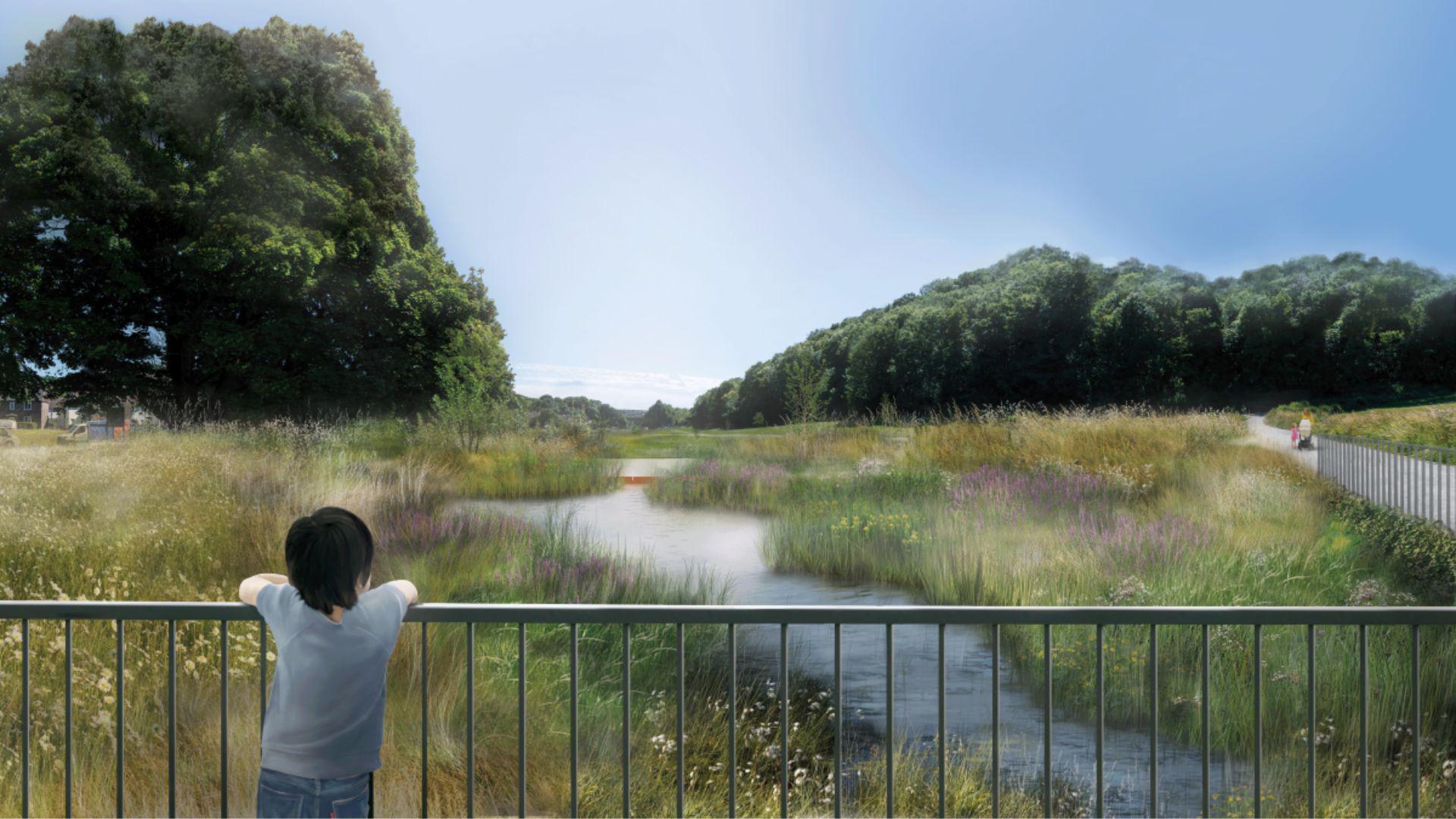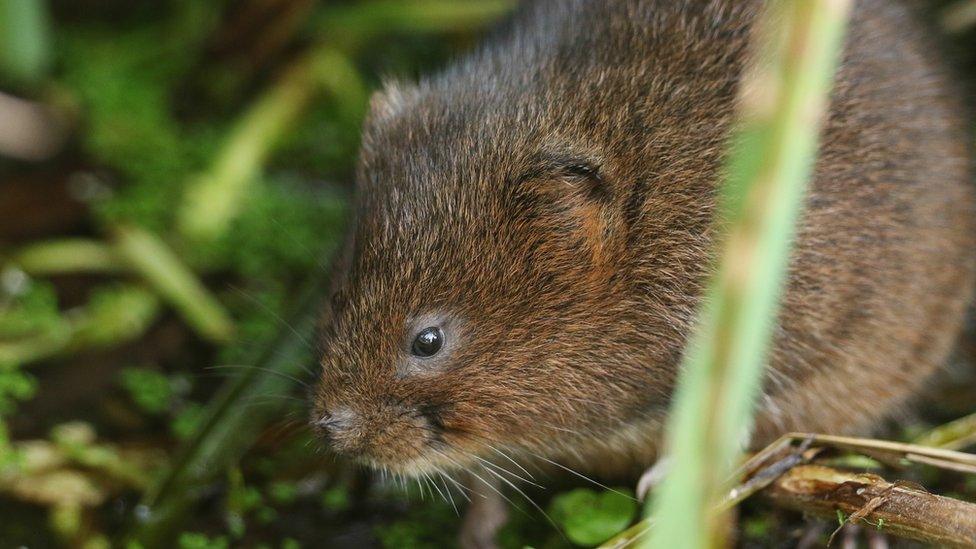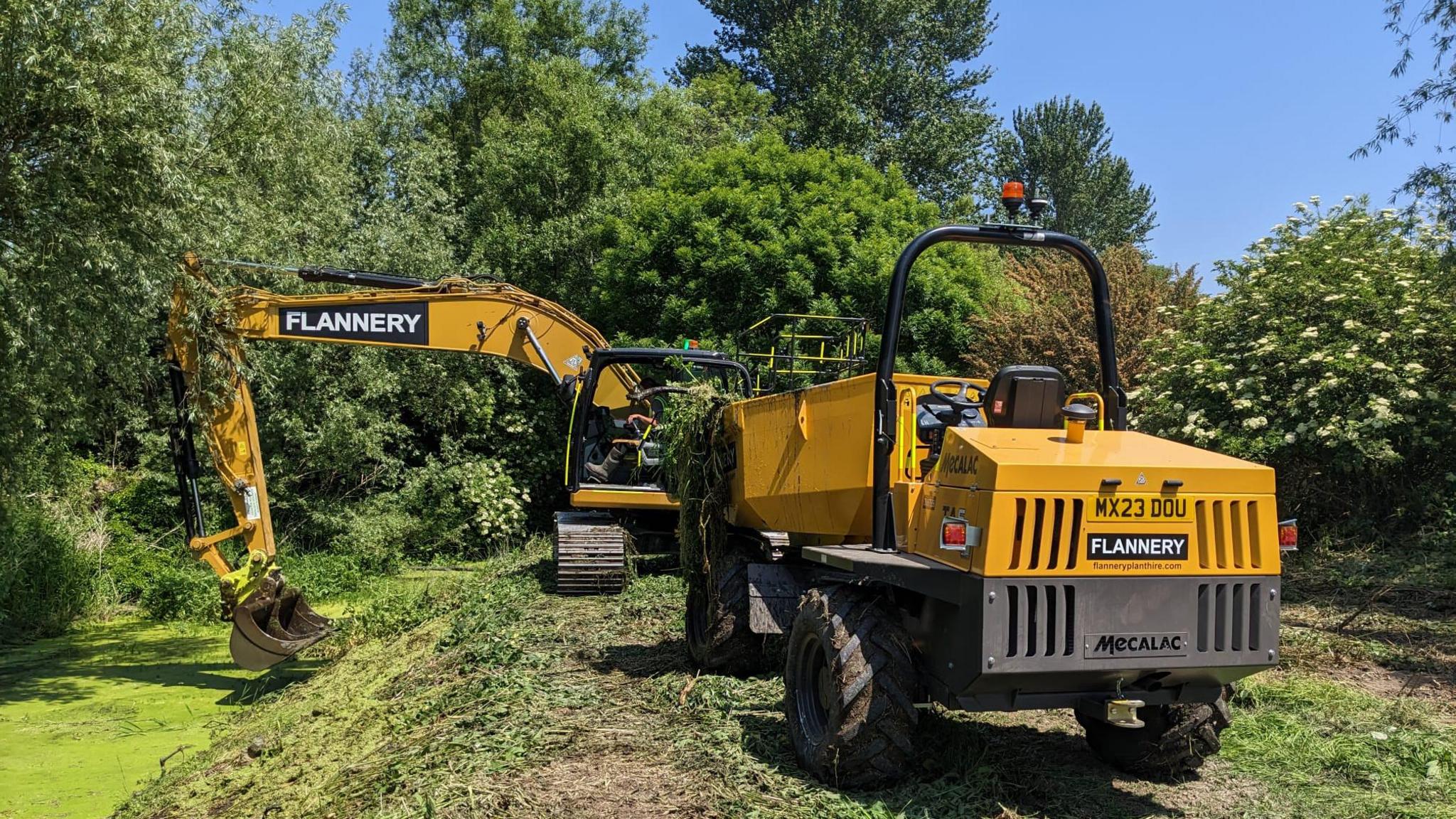Wetland which tackles road pollution to be created

Plants in the basins will grow to create wetlands in about one year
- Published
A park drainage system will be created to absorb run-off water pollution from one of Brighton’s busiest roads.
Experts are analysing the site at Wild Park, in Moulsecoomb, before the main groundwork starts in August.
The £1.79 million project comprises four shallow wetlands which will hold water during heavy rainfall, filtering out pollution from nearby Lewes Road before the water drains into the city’s underground chalk aquifer.
Andy Westwood, head of transport projects and engineering at Brighton & hove City Council, said the “pioneering” project will benefit people, water and nature.
The four wetland basins will be in a grass area alongside Lewes Road, before the park entrance road.
The council says pollution will be broken down through a variety of processes involving plants, sunlight and microbes in the soil.
'Beautiful and sustainable'
It means fewer pollutants would enter the underground chalk aquifer which is a source of clean drinking water for the city.
Wild Park Rainscape will also create new wildlife habitats and aims to reduce flooding.
Mr Westwood said: “By next summer, the wetland area will have blossomed into a beautiful and sustainable space that enhances wildlife, improves water quality and demonstrates better ways of managing water more sustainably in the environment."
The project is funded by National Highways.
Follow BBC Sussex on Facebook, external, on X, external, and on Instagram, external. Send your story ideas to southeasttoday@bbc.co.uk, external or WhatsApp us on 08081 002250.
- Published28 January 2024

- Published9 June 2023
